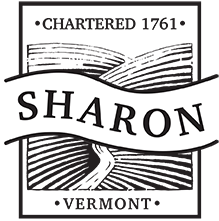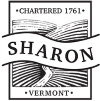Currently Serving
Current Sharon Energy Committee Members are Dee Gish, Ryan Haac (Chair) and Jill Wilcox. The Committee is looking for additional volunteers! Sharon residents: you are welcome and encouraged to join us!
Visit Climate Action for You
About the Energy Committee
The Energy Committee works with the Town, its residents and businesses to help reduce energy use, save money, and protect the environment.
The Sharon Energy Committee meets on the fourth Monday of each month at 6:00 PM in the Town Offices.
We welcome new participants to join in our work realizing energy conservation programs. Bring your wisdom, tools, and perspectives. Or maybe you just have a good idea. Let’s talk!
We work to:
- support and facilitate projects that focus on building our local community,
- implement grants for energy conservation, infrastructure, and resilience,
- improve heating energy efficiency and weatherization,
- confront local transportation issues (public transportation, ride sharing, electric vehicle awareness and charging infrastructure), and
- increase renewable generation and conservation of energy
Enhanced Energy Planning
With Act 174, the state of Vermont is in a period of reflection and proclamation, as we seek to codify our sense of place and document our vision for the future of energy. By engaging in Enhanced Energy Planning, the Town of Sharon administers an appraisal and offers formative goals of our Town’s energy consumption, generation, and appropriate potential.
The Enhanced Energy Planning process is a collaborative effort between the Energy Committee, the Planning Commission, the Selectboard, and Sharon residents. This planning involves an added section for energy related measures in the Town Plan that adheres to Act 174 standards, which, if approved, provide our Town Plan “substantial deference” with regard to renewable energy siting. In other words, Enhanced Energy Planning allows the Town to determine how we will meet the goal. The process has assessed our current relationship with energy and documented the availability and potential of local renewable resources to meet a projected future demand.
Sharon Energy Survey
In late 2017, the Sharon Energy Committee was awarded a New England Grassroots Economic Fund “Grow Grant” to:
– Promote awareness of municipal energy planning
– Produce benchmark heating system type and consumption, and
– Solicit community engagement for Energy Committee priorities
In 2018, the Energy Committee performed the Sharon Energy Survey. The grant enabled outreach resulting in responses from 41% of Sharon households. Results were rolled out through a series of short reports that are available here.
Information and Resources
Electricity and incentives
- Efficiency Vermont – our efficiency utility
- Rebates are available for energy saving products from thermostats to heat pumps and refrigerators. Go here to find rebates: Efficiency Vermont Rebates
- Green Mountain Power offers other incentives for backup battery systems, electric vehicles, heat pumps, electric bicycles, and more.
Transportation
A majority of Vermont’s greenhouse gas emissions result from transportation. Reducing the use of single occupancy will save money, save gas and reduce greenhouse gas emissions. Consider electric (or hybrid) vehicles.
- Make sure your vehicle tires are properly inflated
- Do not idle your vehicle
- Take public transportation or carpool with a neighbor at least once a week.
- Combine your errands and plan your driving route to maximize efficiency and reduce overall driving.
Here are some links to transportation options in our area:
- Go Vermont is a resource for commuters who want to reduce the cost and environmental impact of driving. The program features a free carpool/vanpool matching service, ridesharing tips, and practical information on getting around by biking, walking, bus, train and ferry. Visit http://www.connectingcommuters.org/ for more information.
- Stagecoach bus service offers trips in and around the Upper Valley. For fares, complete schedules or to schedule pickups, contact Stagecoach at 802-728-3773, scoach1@sover.net, or stagecoach-rides.org.
- Advance Transit provides free bus service between the core Upper Valley towns
Schedules available online. Contact: 802-295-1824, info@advancetransit.com - Drive Electric Vermont provides information about EVs in Vermont including charging station maps and a list of financial incentives.
- Vital Communities provides a variety of transportation suggestions.
Electric Vehicles:
- Plug-in electric vehicles (EVs) are fast, fun and efficient. Maintenance is less expensive and charging is inexpensive. EVs increase our energy independence and reduce carbon emissions.
- Interested in electric vehicles? Look here: https://www.driveelectricvt.com/why-go-electric/compare-vehicles
Energy Efficiency: Save Energy and Save Money!
Conserving energy not only saves you money (in lower electricity and fuel bills), but it also reduces your contribution to global climate change.
- Use LED lights.
- Only buy efficient home appliances (Home Performance with Energy Star certified). See Efficiency Vermont’s list of Energy Star appliances: https://www.efficiencyvermont.com/products-technologies
- Turn off lights and appliances when not in use. Plugging appliances into a power strip, and then turning off the power strip, is an easy way to reduce electrical use by appliances that draw power even when turned off.
- Grow food on your property
- Turn down your thermostat a few degrees in winter.
- Buy local. By supporting local business, you drive less and keep resources in your community.
- Reduce material consumerism, reuse and recycle.
- Compost your food scraps and yard waste, providing a valuable resource and eliminating unnecessary contributions to landfills.
- Reuse old objects for new purposes. Upcycling, or creative reuse is the process of transforming unwanted materials into new products. Ideas can be found at Upcyclethat.com
Weatherization
An efficient home is Weatherized, in that it effectively protects against weather extremes and provides a healthy environment for habitation.
Heating homes in Vermont accounts for close to 60% of residential energy use. Home weatherization reduces cold winter drafts and summer heat gain, controls moisture, provides adequate fresh-air ventilation for healthy living, and tests appliance combustion for efficiency, carbon monoxide, and adequate exhaust. Weatherization is the practice of considering the home as an operating system.
Weatherized homes in Vermont typically save 25 to 30 percent on heating costs, which could equate to an annual savings of $750 to $1,000. While much more extensive “deep-energy” retrofits can achieve over 75% savings, retrofits cost more and have longer payback periods than home weatherization. Home weatherization is one of the most cost-effective ways to reduce energy use, save on energy spending, and increase home comfort.
See Sustainable Woodstock’s page here for more information: https://www.sustainablewoodstock.org/our-programs/energy/improve-energy-efficiency/
Renewable Energy
- Locally produced, clean, renewable energy lowers carbon emissions and keeps energy decisions local.
- Examples of renewable energy include solar electric (PV), solar hot water heating, wind turbines, hydropower, and ground source heat pumps. The most common residential renewable energy generation method is solar photovoltaics.
- Solar energy is ubiquitous: it can fuel the production of electricity, generate heat and light, provide drying services, induce wind and temperature currents, and supply fuel for photosynthesis, among other things. In one way or another, energy from the sun is essential and unavoidable.
- Clotheslines avoid electricity use altogether
- Net-metering: a policy that enables electric utility customers to turn their electric meters backwards when they produce more energy than they consume, thus gaining net energy production.
- A list of solar energy contractors can be found here: https://www.revermont.org/our-members/directory/business-category/technology-types/solar/
Recycling and Trash Disposal
- The Greater Upper Valley Solid Waste Management District covers Sharon’s trash disposal. Find where to take your trash and recycling here: https://www.guvswd.org/trash.html or call 802-295-5740.
- Reduce Food Waste. Act 148 Vermont’s Universal Recycling & Composting Law requires all organic material – like food scraps and other food waste – to be diverted from the landfill by 2020.
- Burning or burying trash is illegal. It is illegal to burn trash in the State of Vermont for very good reasons. Decades ago, most trash consisted of only paper, cardboard, and glass. Today, however, manufacturers use a host of synthetics in packaging, most of which release carcinogenic toxins into the air and soil when burned. It is also illegal to bury trash on your own property, or dump or deposit it anywhere other than in a certified disposal facility.
- Why Recycle? http://www.sustainablewoodstock.org/wp-content/uploads/2016/05/Act-148-Why-How.pdf

